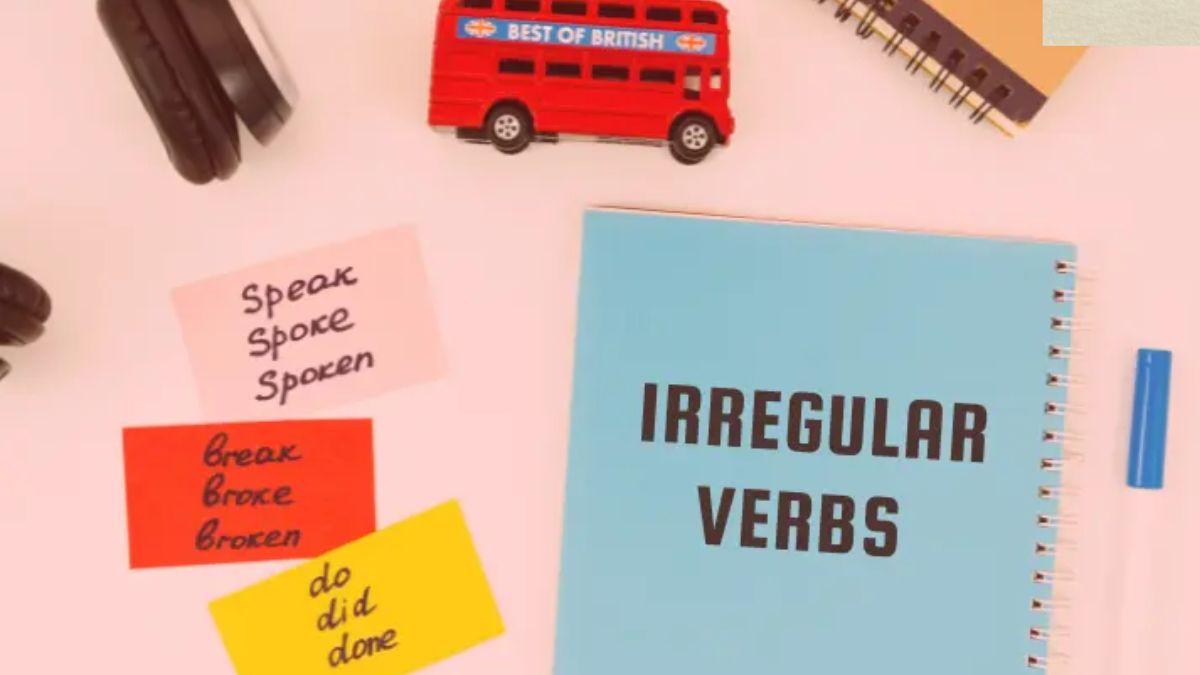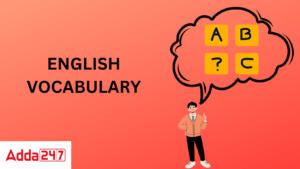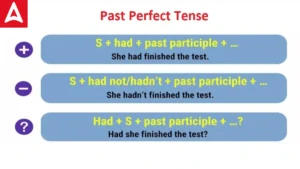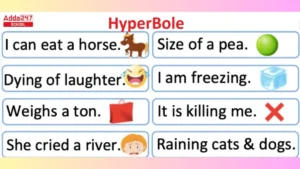Irregular verbs are verbs that do not follow the standard rules of conjugation in the past tense and past participle forms. Unlike regular verbs, which typically add “-ed” to create these forms, irregular verbs change in unpredictable ways. For example, “go” becomes “went” in the past tense, and “sing” becomes “sang.” These verbs are common in English and must be memorized individually, as there is no consistent pattern to follow. Understanding and mastering irregular verbs is crucial for fluency in both spoken and written English, as they appear frequently in everyday communication.
Irregular Verbs
Verbs that deviate from the typical patterns for tense and past participle are known as irregular verbs. While irregular verbs each have their own distinct past tense forms and past participles, most regular verbs in English utilize the ending “-ed” for both.
Because they are all a little bit different, irregular verbs are one of the most challenging components of the current English language. English speakers are forced to memorize each one, along with their unique verb forms because there is no method.
Irregular Verbs in English
You may say that irregular verbs “follow their own rules” as verbs. Regular verbs form the past tense and past participle by adding “-ed” or “-d” in accordance with modern English grammatical conventions. However, irregular verbs utilise entirely unique words for their many verb forms when they are the primary verb of a phrase. (A quick reminder: The form used with the present perfect tense is the past participle.)
Let’s “dance” and “sing” to demonstrate what we mean. It’s easy to observe the differences between these two verbs: “dance” is a regular verb, whereas “sing” is an irregular verb.
There’s no huge secret or method to conjugating the verb “dance;” you simply follow the same procedure as with the majority of other verbs. You only need to add “-ed,” or in this example merely “-d,” as the base form already ends in “e,” to produce both the simple past tense and past participle forms.
| Base | Simple Past Tense | Past Participle |
| dance | danced | danced |
But because “Sing” is irregular, the conventional guidelines don’t apply. Since “singed” is the wrong form of this verb, you cannot use it. Instead, “sing” contains a singular past participle as well as a singular past tense. It is necessary to memorize the unique forms of “sing” in order to know how to conjugate it.
| Base | Simple Past Tense | Past Participle |
| sing | sang | sung |
In actual practice, you finish with the conjugations:
- We sang and danced all night.
- I have sung opera before, but I have never danced to it.
- She prefers music sung by professionals.
No matter whether the verb is regular or irregular, the simple present tense is conjugated the same way. This includes ending the third-person singular form with a “-s” or “-es.” Be mindful that some exceptions, such as the verb “be,” also have unique present tense forms.
| Base | Present Tense | Simple Past Participle | Past Participle |
| be | am, is, are | was, were | been |
Many additional linking verbs, like “become” and “feel,” are irregular, just like “be.” Additionally, irregular verbs can still be used as imperative verbs even if they are transitive or intransitive.
How Many Irregular Verbs in English?
In English, there are more than 200 irregular verbs. Some of the most frequently used verbs in the language, such as “to be,” “to have,” and “to say,” are included in this list.
Because some verb conjugations are worded differently in British and American English, the latter actually includes more irregular verbs.
For instance, in American English, “to spell” is a regular verb, and the past tense is “spelled,” whereas in British English, “to spell” is an irregular verb, and the past tense is “spelt.”
List of Irregular Verbs PDF
Irregular Verbs List and Examples PDF
Top 200 Irregular Verbs List
Top 200 Irregular Verbs List is given below, Lets check and understand.
| Base Form | Past Simple (V2) | Past Participle (V3) |
| arise | arose | arisen |
| awake | awoke | awoken |
| be | was/were | been |
| bear | bore | born(e) |
| beat | beat | beaten |
| become | became | become |
| begin | began | begun |
| bend | bent | bent |
| bet | bet | bet |
| bind | bound | bound |
| bite | bit | bitten |
| bleed | bled | bled |
| blow | blew | blown |
| break | broke | broken |
| breed | bred | bred |
| bring | brought | brought |
| broadcast | broadcast | broadcast |
| build | built | built |
| burn | burnt/burned | burnt/burned |
| burst | burst | burst |
| buy | bought | bought |
| can | could | … (been able) |
| catch | caught | caught |
| choose | chose | chosen |
| cling | clung | clung |
| come | came | come |
| cost | cost | cost |
| creep | crept | crept |
| cut | cut | cut |
| deal | dealt | dealt |
| dig | dug | dug |
| do | did | done |
| draw | drew | drawn |
| dream | dreamt/dreamed | dreamt/dreamed |
| drink | drank | drunk |
| drive | drove | driven |
| eat | ate | eaten |
| fall | fell | fallen |
| feed | fed | fed |
| feel | felt | felt |
| fight | fought | fought |
| find | found | found |
| fly | flew | flown |
| forbid | forbade | forbidden |
| forget | forgot | forgotten |
| forgive | forgave | forgiven |
| freeze | froze | frozen |
| get | got | got |
| give | gave | given |
| go | went | gone |
| grind | ground | ground |
| grow | grew | grown |
| hang | hung | hung |
| have | had | had |
| hear | heard | heard |
| hide | hid | hidden |
| hit | hit | hit |
| hold | held | held |
| hurt | hurt | hurt |
| keep | kept | kept |
| kneel | knelt | knelt |
| know | knew | known |
| lay | laid | laid |
| lead | led | led |
| lean | leant/leaned | leant/leaned |
| learn | learnt/learned | learnt/learned |
| leave | left | left |
| lend | lent | lent |
| lie (in bed) | lay | lain |
| lie (to not tell the truth) | lied | lied |
| light | lit/lighted | lit/lighted |
| lose | lost | lost |
| make | made | made |
| may | might | … |
| mean | meant | meant |
| meet | met | met |
| mow | mowed | mown/mowed |
| must | had to | … |
| overtake | overtook | overtaken |
| pay | paid | paid |
| put | put | put |
| read | read | read |
| ride | rode | ridden |
| ring | rang | rung |
| rise | rose | risen |
| run | ran | run |
| saw | sawed | sawn/sawed |
| say | said | said |
| see | saw | seen |
| sell | sold | sold |
| send | sent | sent |
| set | set | set |
| sew | sewed | sewn/sewed |
| shake | shook | shaken |
| shall | should | … |
| shed | shed | shed |
| shine | shone | shone |
| shoot | shot | shot |
| show | showed | shown |
| shrink | shrank | shrunk |
| shut | shut | shut |
| sing | sang | sung |
| sink | sank | sunk |
| sit | sat | sat |
| sleep | slept | slept |
| slide | slid | slid |
| smell | smelt | smelt |
| sow | sowed | sown/sowed |
| speak | spoke | spoken |
| spell | spelt/spelled | spelt/spelled |
| spend | spent | spent |
| spill | spilt/spilled | spilt/spilled |
| spit | spat | spat |
| spread | spread | spread |
| stand | stood | stood |
| steal | stole | stolen |
| stick | stuck | stuck |
| sting | stung | stung |
| stink | stank | stunk |
| strike | struck | struck |
| swear | swore | sworn |
| sweep | swept | swept |
| swell | swelled | swollen/swelled |
| swim | swam | swum |
| swing | swung | swung |
| take | took | taken |
| teach | taught | taught |
| tear | tore | torn |
| tell | told | told |
| think | thought | thought |
| throw | threw | thrown |
| understand | understood | understood |
| wake | woke | woken |
| wear | wore | worn |
| weep | wept | wept |
| will | would | … |
| win | won | won |
| wind | wound | wound |
| write | wrote | written |
Irregular Verb Examples
Irregular verbs are also referred to as powerful verbs. Here are nine examples that are more commonly used than the others. These nine irregular verbs are also some of the most employed words used in the English language.
- Think
- Make
- Take
- Come
- Know
- Go
- Get
- Say
- See
Irregular Verbs- Best Way To Learn And Remember
If English is your first language, you probably already know which verbs are irregular. Most kids see these trends without consciously realizing it.
There is no simple strategy for remembering how to use irregular verbs if you are teaching or learning English. Since each one is unique, learning them on purpose is the only way to master them.
You can learn these terms by using a variety of techniques.
Use of flash cards is one practical strategy. You can learn all the irregular verbs in the table in less than a month if you practice 10 to 15 of them daily.
With each new irregular verb you learn, it’s a fantastic idea to practice writing your own example sentences. In this manner, you can begin to develop a mental image of how these verbs sound in the past tense.
| Related Post | |
| Verb Forms | Transitive and Intransitive Verbs |
| Modal Verbs | Auxiliary Verbs |









 Vocabulary Words with Meaning and Senten...
Vocabulary Words with Meaning and Senten...
 Past Perfect Tense: Definition, Formula,...
Past Perfect Tense: Definition, Formula,...
 Hyperbole- Explanation, Definition, Exam...
Hyperbole- Explanation, Definition, Exam...









